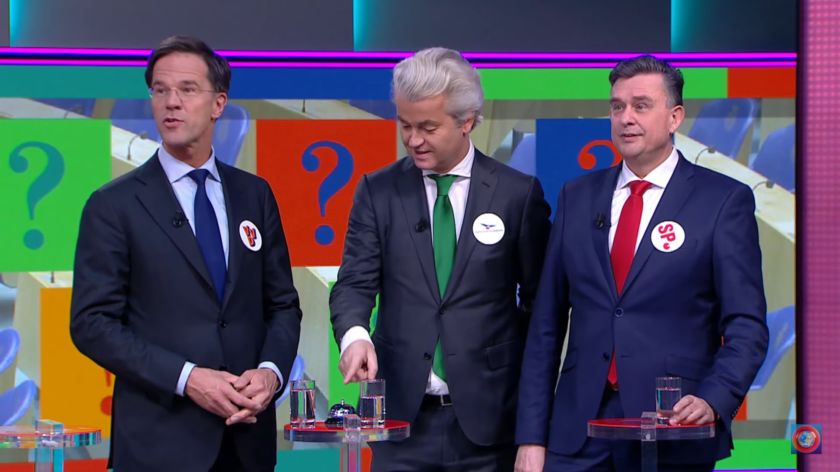Today’s elections, a short introduction
-
 Still uit NOS Jeugdjournaal
Still uit NOS Jeugdjournaal
It is hard not to have noticed all around the city and on campus: today is election day in the Netherlands. Internationally, it is the first of a series of important European elections. What awaits us today?
The Netherlands will head to the polls today to settle the score on what parties will lead the country in the next four years. This long-anticipated election has been much debated in the public arena, as the country has been polarised by many of the issues which have been brought to the table by candidates. As the upcoming vote has been widely discussed on Dutch news outlets, many internationals might be wondering what all the fuss is about.
Internationally, the Dutch elections spark so much interest because the outcome stands to have a heavy baring on the rest of Europe, as there has been speculation that a far-right win in the Netherlands could provoke similar outcomes in France and Germany. In January, Geert Wilders, leader of the populist Party of Freedom, has already attended a convention with Marine le Pen and Frauke Petry, the populist leaders in those two countries. The slogan of the convention was: ’the leaders of a new Europe present itself’. Right now, the Freedom Party is second in the polls, right behind current Prime Minister Rutte’s VVD.
The seven most popular parties, according to the polls:
VVD – People’s Party for Freedom and Democracy:
Classified as right wing/ liberal
Leader: Mark Rutte (current Prime Minister)
Currently 40 seats
PvdA – Labour Party:
Classified as Social Democrat
Leader: Lodewijk Asscher
Currently 35 seats
SP – Socialist Party:
Classified as Socialist
Led by Emile Roemer
Currently 15 seats
CDA – Christian Democratic Appeal:
Classified as Liberal
Leader: Sybrand van Haersma Buma
Currently 13 seats
PVV – Party of Freedom:
Classified as far-right
Leader: Geert Wilders
Currently 12 seats
D66 – Democrats 66:
Classified as Liberal Centrists
Leader: Alexander Pechtold
Currently 12 seats
GroenLinks – Green Party
Classified as left wing environmentalist
Leader: Jesse Klaver
Currently 4 seats
Splintered
The Dutch electoral system is quite unique, as it is designed to encourage cooperation between opposing parties. There are 28 parties in total, making the political environment of the Netherlands quite fractured in order to boost coalition building. This political strategy serves as a safeguard against political monopolisation. The Dutch parliament consists of 150 seats, and to form a government, a coalition has to have a majority of at least 76 seats. No political party has ever won 50 percent of votes in these elections.
Therefore, parties will have to band together as a way of pushing shared interests. Topics which have stimulated debate have revolved around the financial crisis, health care, pension security, unemployment, economic growth plans, anti-EU and anti-Islamic sentiments. And the political landscape is more splintered than ever, if the predictions are correct. Smaller parties will grow and traditional parties will lose their strong position. A formateur will be installed to guide the formation process.
Opposing views
Among the twenty eight possible parties, approximately five parties will need to unite to take majority seats in the Parliament. This could prove dicey, given that many parties (such as the Liberal Party and the Party of Freedom) have refused to collaborate with one another given their opposing views on many hot button issues. The latest polls have the Liberal Party coming in first, only slightly ahead of the Party of Freedom, with the Christian Democratic Appeal coming in at a close third. However, as the American elections have shown us, winning projections are not always accurate.
Those wanting to vote will have until 21.00 on Wednesday the 15th to do so. Given past trends, voter turnout is expected to be about 75% of the eligible voting population, although some political scientists have speculated that Wilder’s controversial platform might stimulate more total voters. Official vote counters will work late into the night to announce winning party at 6.00 on Thursday March 16th. Once a winner has been chosen, parties will work in a fury to secure alliances and arrange party coalitions. This process can take up to several months to finalize. / Jerika L. Heinzé and Jozien Wijkhuijs



